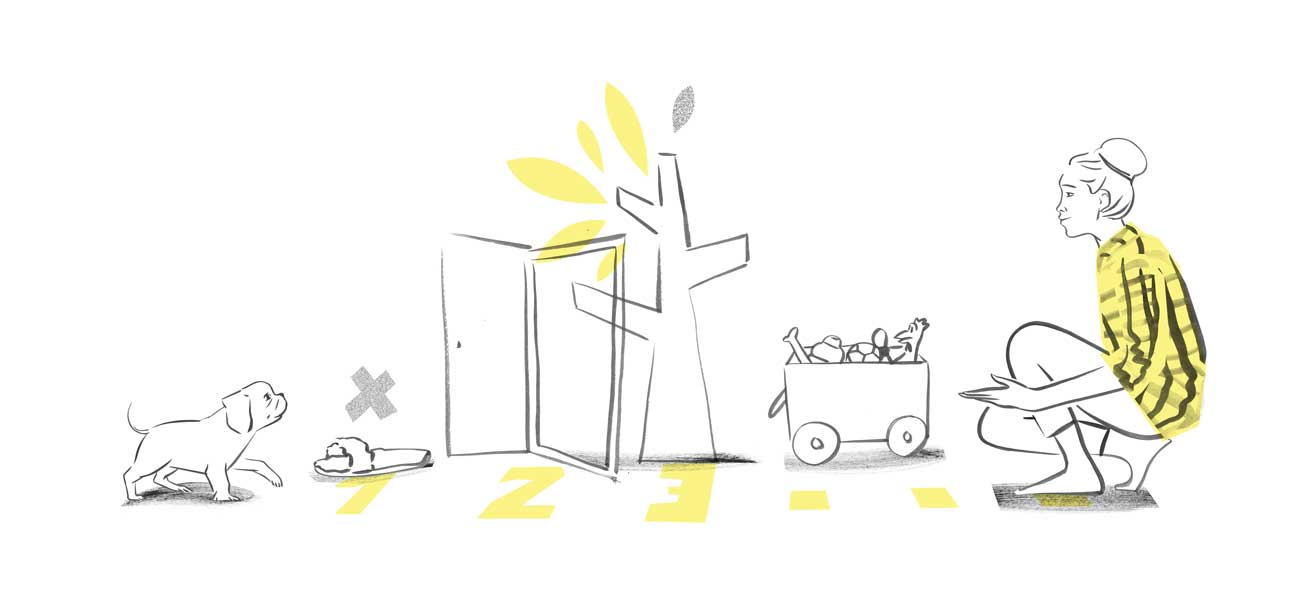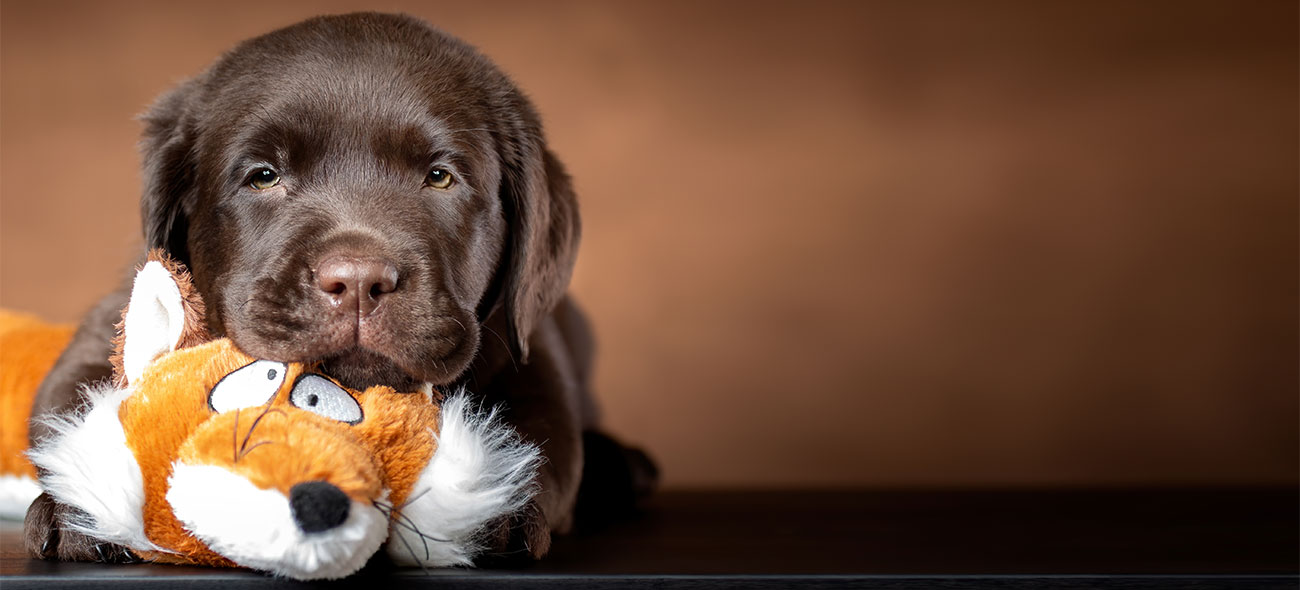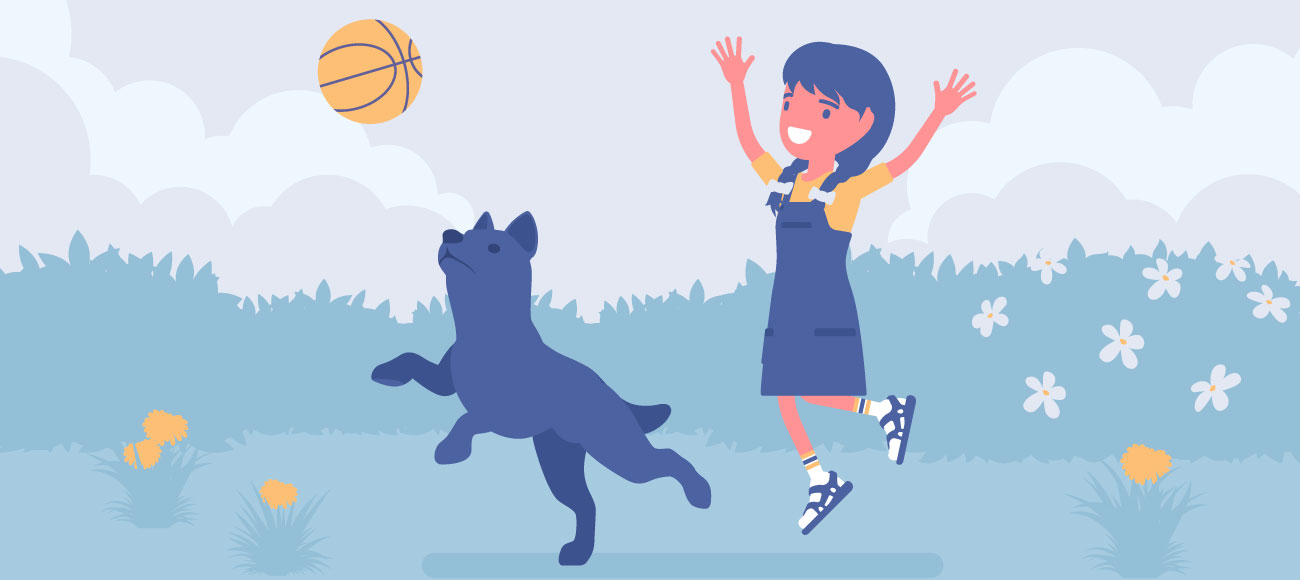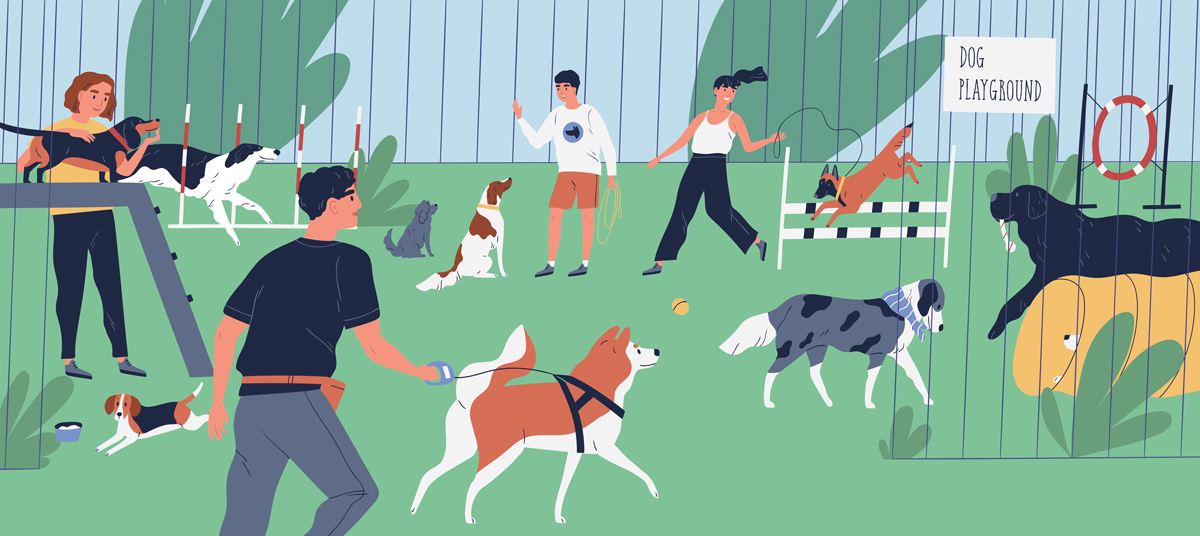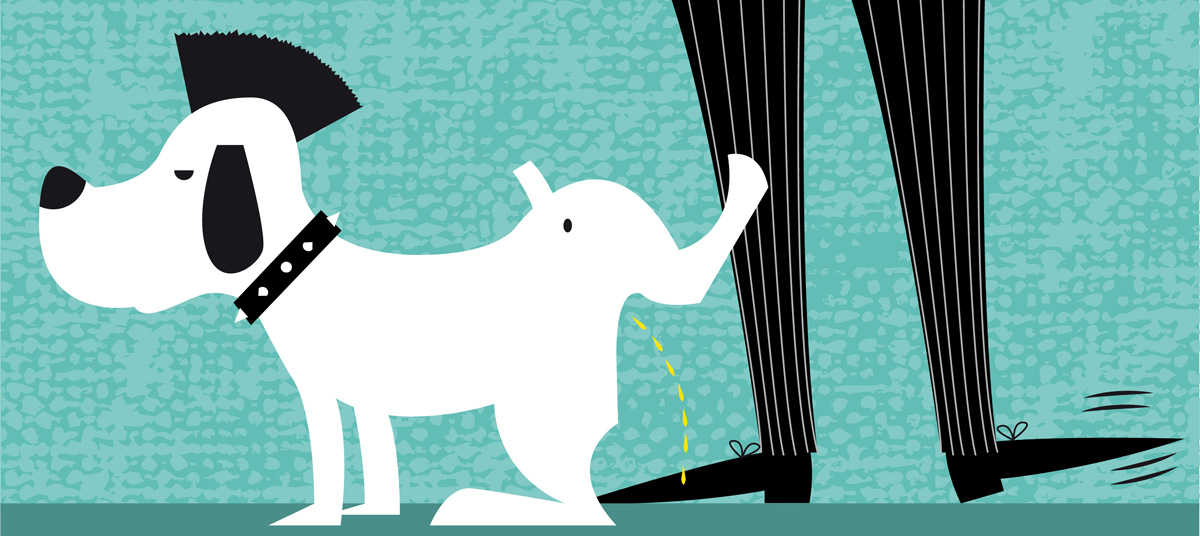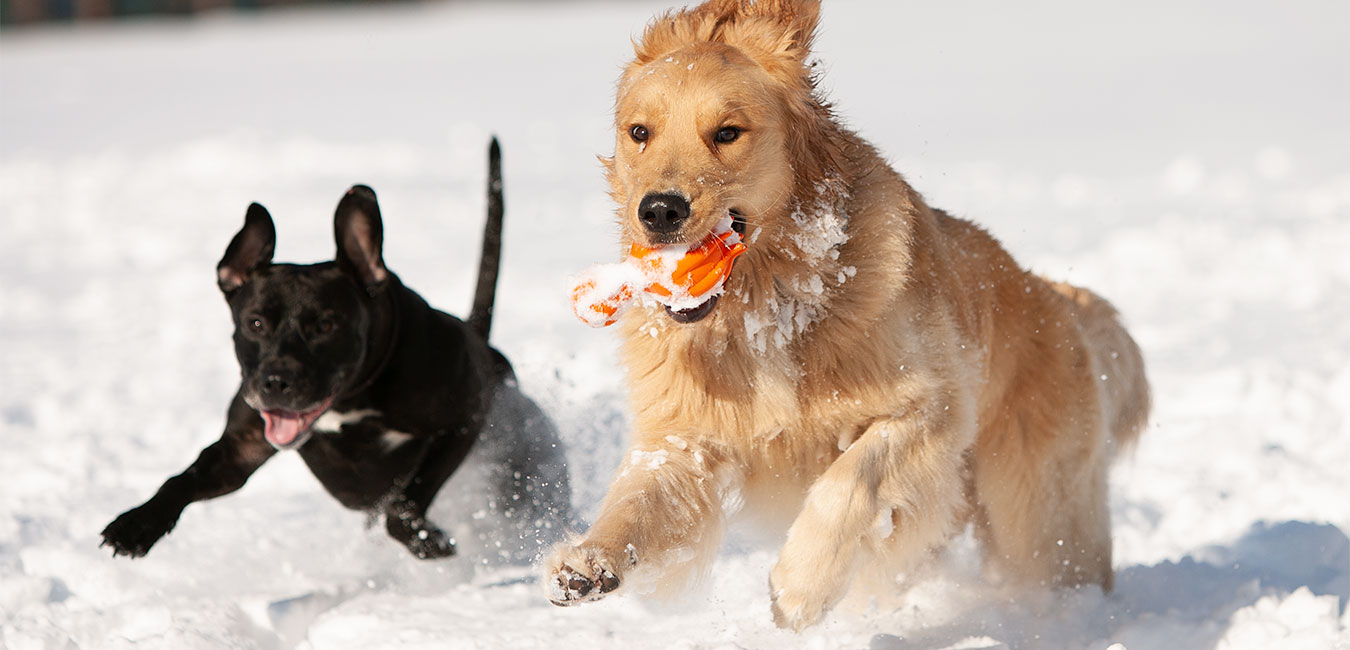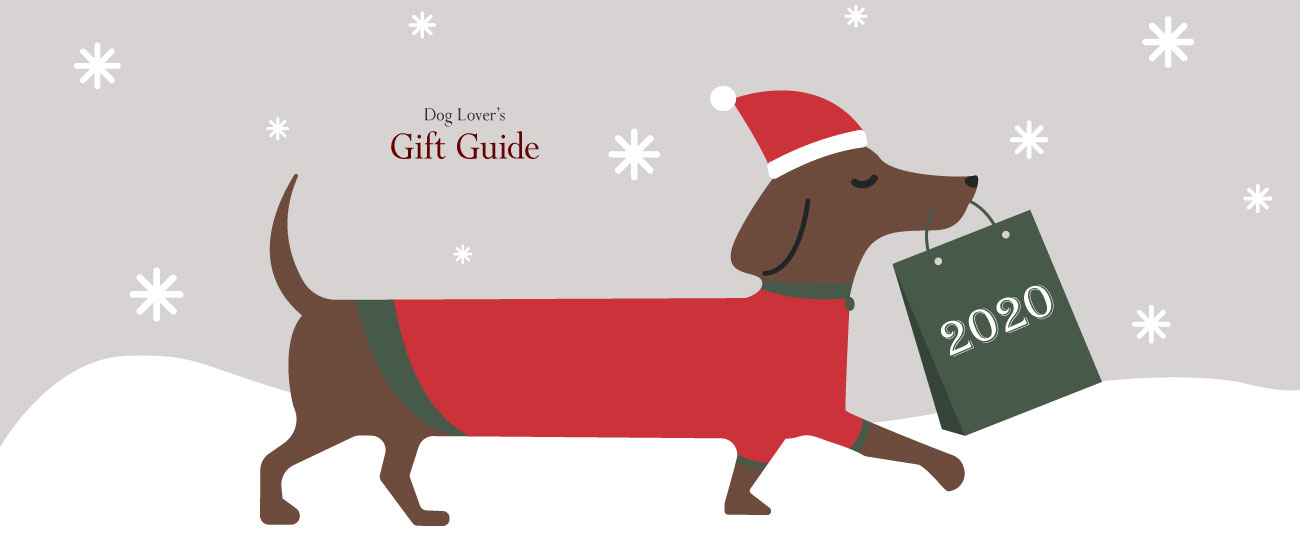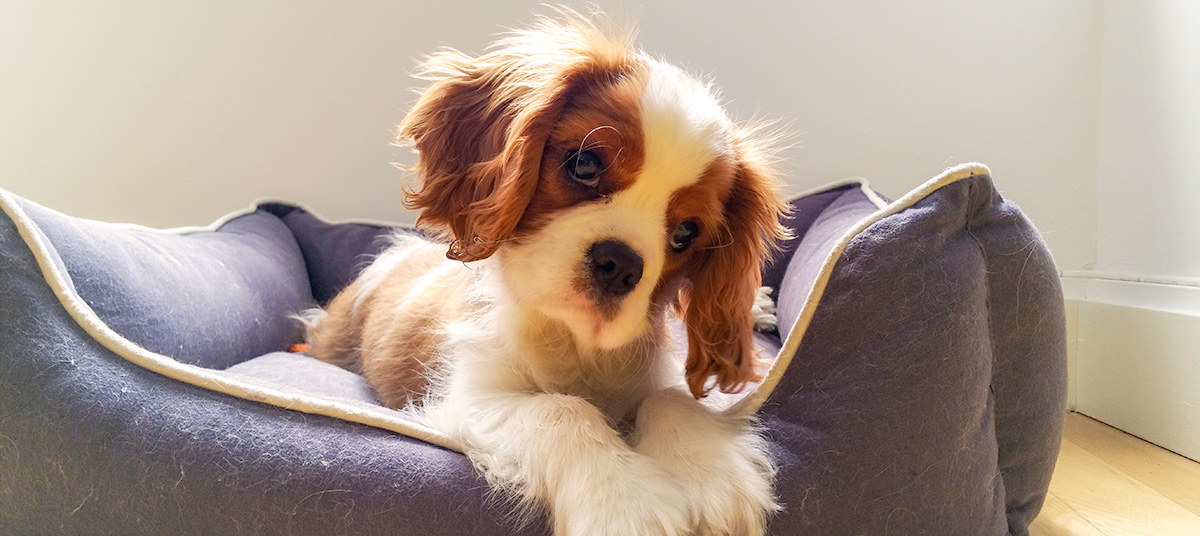Essential Guide for All Puppy Parents
by Ovidiu Stoica
Last edited on August 22, 2021
What does it mean to have a well-behaved urban dog?
For most city residents, it means a companion who is confident and curious, friendly and playful with other dogs and people, listens well and dependably to basic obedience commands, follows the rules of the house, doesn’t show signs of aggression or anxiety, and is attuned to her owner.
In order to achieve this standard of balanced behavior, understanding what your puppy’s developmental needs are and how to meet them is absolutely critical. We hope this guide will get you started on the right track.
Between 7-16 weeks of age, the puppy’s immune system is underdeveloped but getting stronger every day. Also, she is now able to learn by association. We call this the “imprinting period” because whatever she experiences now (or does not), will leave a lasting mark and affect her behavior for the rest of her life.
Between the age of 16-25 weeks, your puppy is transitioning to a young dog. She has completed her vaccinations and can now freely socialize with other dogs. She begins teething, which will likely lead to more chewing. She will start testing boundaries, and experiment with her independence. While her capacity to focus and learn has increased, so have the number of potentially distracting situations.
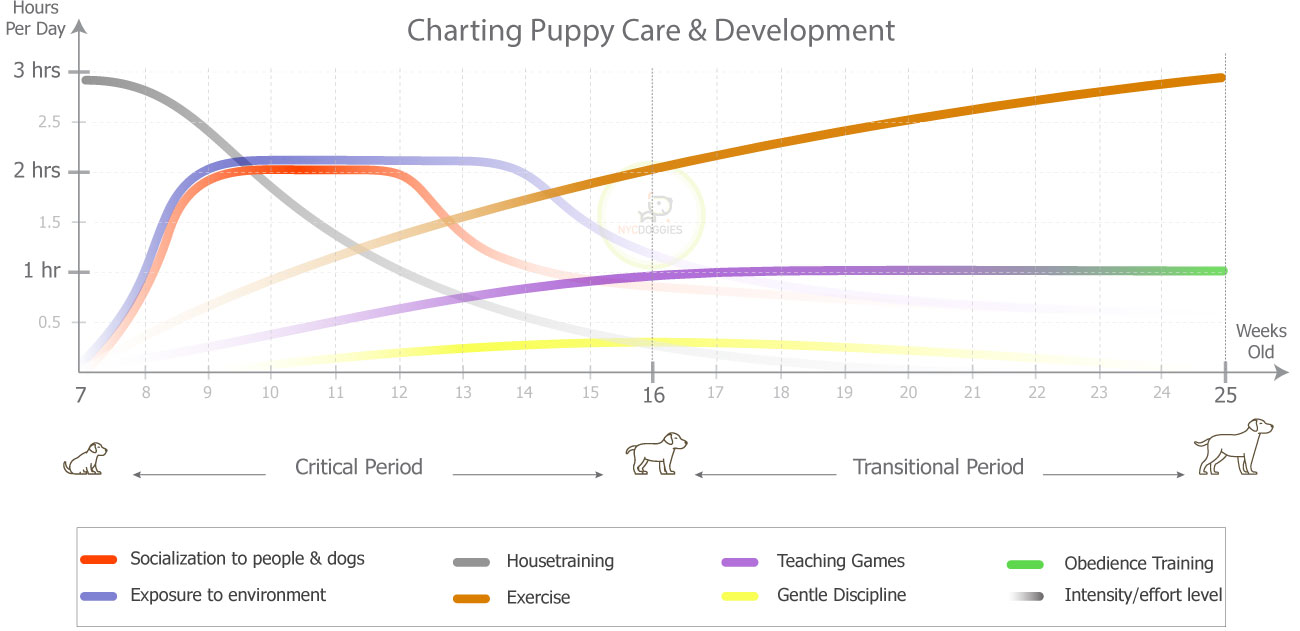
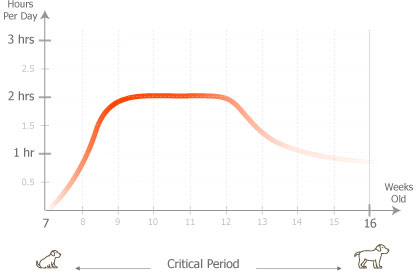 Properly socializing a puppy between 8 –12 weeks is critical!
Properly socializing a puppy between 8 –12 weeks is critical!
To ensure the puppy grows into a balanced, well-behaved adult dog, she must be introduced daily to as many new people and friendly, healthy dogs as possible. Positive experiences from this developmental period are imprinted for life, and will shape her into becoming a friendly, confident dog.
Unfortunately, if you miss this window, you cannot turn back the clock, and will most likely be faced with a never-ending struggle to manage anxiety, fear, and/or aggression.
For further reading on socialization, read our article Socialization Guidelines for Urban Puppies.
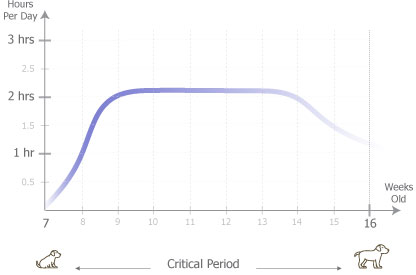 Between 7-16 weeks your puppy’s brain is developing rapidly. She is becoming aware of her environment and associating feelings of safety and fear with her surroundings.
Between 7-16 weeks your puppy’s brain is developing rapidly. She is becoming aware of her environment and associating feelings of safety and fear with her surroundings.
This is the time when you must expose her, in a positive way, to the sights, sounds, and experiences of the city… no matter how scary they may seem to her in the beginning. This, along with socialization, is where most of your energy should be spent in the early weeks.
Unfortunately, if you miss this window, you cannot turn back the clock, and will most likely be faced with the never-ending struggle of managing anxious behaviors.
For further reading on exposing puppies to an urban environment, read our article Socialization Guidelines for Urban Puppies.
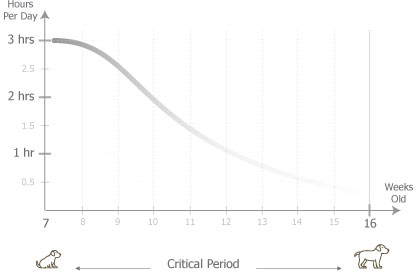 Housetraining is all about learning the most important rules of the house: where to poop and pee, what to chew (and not chew), where to sleep, and how to feel comfortable when left alone in the home.
Housetraining is all about learning the most important rules of the house: where to poop and pee, what to chew (and not chew), where to sleep, and how to feel comfortable when left alone in the home.
At the very beginning, when you bring your puppy home, housetraining will take up a lot of your time and energy. However, if you put the time in at the beginning and remain vigilant and consistent, your efforts will quickly be rewarded. Most puppies can learn the basics within a couple of weeks. By 16 weeks your puppy should be mostly pooping and peeing outside, should be comfortable alone in the house for at least a couple of hours, and should know what he’s allowed to chew and what not to chew.
For further reading on housetraining your puppy, read our article Housebreaking Guidelines for Urban Puppies.
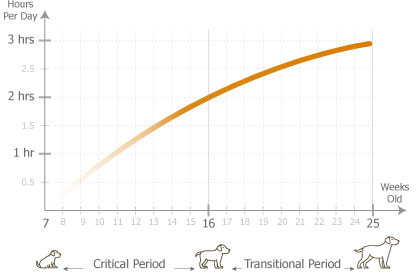 Absolutely essential for both physical and mental well-being, exercise is rigorous movement that builds your dog’s strength, provides mental stimulation, and tires her out. Exercise is the magical “elixir” that cures boredom, prevents the development of destructive habits, and eases/eliminates separation anxiety.
Absolutely essential for both physical and mental well-being, exercise is rigorous movement that builds your dog’s strength, provides mental stimulation, and tires her out. Exercise is the magical “elixir” that cures boredom, prevents the development of destructive habits, and eases/eliminates separation anxiety.
Leashed walks rarely provide enough exercise for young, healthy dogs. When dogs exercise they need to regulate themselves by running and resting at intervals, something best achieved by off-leash activity outside at a park, beach, playground, etc.
For young puppies, short intervals of play are enough. As they get older and gain more stamina, their exercise routine needs to get longer, and more physically demanding.
Our article on puppy exercise is coming soon. Subscribe to our newsletter to be notified when it is published.
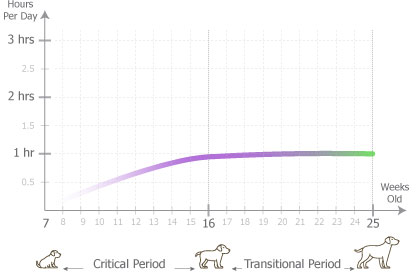 Playing interactive games with a puppy helps establish the foundations for training by introducing incentives (treats, toys, praise), by strengthening the parent/puppy relationship, and by practicing communication. Importantly, we also use play to introduce puppy to movements and positions that will be used in obedience training, like running to the parent, sitting down to get a treat, following the hand with the toy.
Playing interactive games with a puppy helps establish the foundations for training by introducing incentives (treats, toys, praise), by strengthening the parent/puppy relationship, and by practicing communication. Importantly, we also use play to introduce puppy to movements and positions that will be used in obedience training, like running to the parent, sitting down to get a treat, following the hand with the toy.
Obedience training is the process of teaching a dog to reliably respond, with a desired action, to a specific command, even when she may not necessarily want to.
The transition from teaching-games to structured obedience training is gradual, and should happen when the puppy is around 5-6 months old.
For further reading on teaching games to your puppy, and transitioning to obedience training, read our article Teaching Games – A Healthy Start to Training.
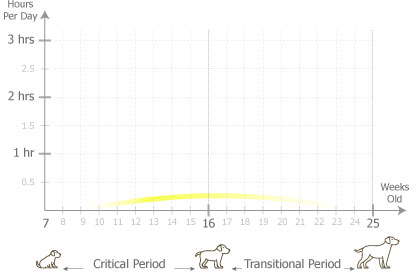 By gently introducing discipline to your puppy at a young age, she will internalize the lessons and respond more effectively to your communications as she grows older. She will link your communication of displeasure with the boundaries and consequences you have imposed, making elements of the housetraining process more fluid and intuitive, minimizing the development of unwanted behaviors, and later on, strengthening your obedience training lessons.
By gently introducing discipline to your puppy at a young age, she will internalize the lessons and respond more effectively to your communications as she grows older. She will link your communication of displeasure with the boundaries and consequences you have imposed, making elements of the housetraining process more fluid and intuitive, minimizing the development of unwanted behaviors, and later on, strengthening your obedience training lessons.
Our article on puppy gentle discipline is coming soon. Subscribe to our newsletter to be notified when it is published.
The false dichotomy between the need to keep your puppy healthy, and the need to socialize her
Despite a scientific consensus to the contrary, new puppy owners continue to be advised to keep their puppy isolated at home, the stated reason being that the risk of getting sick before vaccinations are complete is too high. This is so very wrong.
Early puppy socialization must be done thoughtfully and carefully to mitigate the risk of illness, but the alternative is far more dangerous. In fact, the number one killer of dogs under the age of three years old is not infectious disease, but euthanasia due to behavioral problems that develop when puppies are not socialized.
Because of this fact, the American Veterinary Society of Animal Behavior (AVSAB) published a position paper in 2008 that landed firmly on the side of early puppy socialization. In further support of the AVSAB position, the American Veterinary Medical Association (AVMA) published a review of literature in 2015 that unequivocally advocates for early puppy socialization.
Raising a puppy from a infancy to adulthood is a challenging task, but for the informed parent, a very rewarding one. You will shape your dog’s behavior and approach to the world in ways that will benefit her for the rest of her life. In combination with good nutrition, lots of exercise, and maintenance of training, the commitment you make to your puppy now will allow her to live a happy, healthy, and balanced life.
About the author
Ovidiu has over 25 years of experience professionally working with dogs. In 1997 he started training dogs for private clients, dog conformation shows, and Schutzhund competitions and founded NYC Doggies in 2002. Ovidiu has co-authored the upcoming book, WHOLE DOG PARENTING: EVERYTHING YOU NEED TO RAISE AND TRAIN AN URBAN PUP

